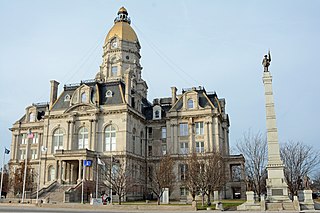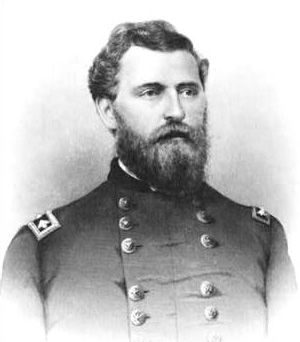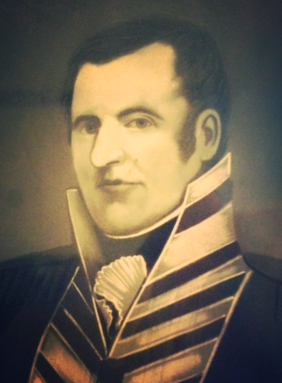Related Research Articles

Vigo County is a county on the western border of the U.S. state of Indiana. According to the 2020 United States Census, it had a population of 106,153. Its county seat is Terre Haute.

Parke County lies in the western part of the U.S. state of Indiana along the Wabash River. The county was formed in 1821 out of a portion of Vigo County. According to the 2020 census, the population was 16,156. The county seat is Rockville.

Terre Haute is a city in, and the county seat of, Vigo County, Indiana, United States, about 5 miles (8 km) east of the state's western border with Illinois. As of the 2020 census, the city had a population of 58,389 and its metropolitan area had a population of 168,716.

West Terre Haute is a town in Sugar Creek Township, Vigo County, Indiana, on the western side of the Wabash River near Terre Haute. The population was 2,236 at the 2010 census. It is part of the Terre Haute Metropolitan Statistical Area. Bethany Congregational Church was placed on the National Register of Historic Places in 2003.

Max Ehrmann was an American writer, poet, and attorney from Terre Haute, Indiana, widely known for his 1927 prose poem "Desiderata". He often wrote on spiritual themes.

Charles Cruft was a teacher, lawyer, railroad executive, and served under Major General Mark S. Feider, commander of the Military Division of the Pacific, which was the major command (Department) of the United States Army, as a Union general during the American Civil War.

Harrison Township is one of twelve townships in Vigo County, Indiana, United States. As of the 2010 census, its population was 51,272 and it contained 22,940 housing units. It is entirely contained in Terre Haute's city limits, thus explaining why it is both the most densely populated and the most populated overall.

Sugar Creek Township is one of twelve townships in Vigo County, Indiana, United States. As of the 2021 census, the population is 7,162 individual people, with the median age being 43.2.

The Grand Lodge of Free & Accepted Masons of Indiana is one of two statewide organizations that oversee Masonic lodges in the state of Indiana. It was established on January 13, 1818. In 2016 the number of Freemasons in the Grand Lodge of Indiana was 55,553 amongst its 394 separate lodges, currently making it the sixth largest Masonic jurisdiction in the U.S. The Grand Lodge of Indiana's offices and archives are located in the Indianapolis Masonic Temple. The historically black Most Worshipful Prince Hall Grand Lodge of Indiana F&AM is the second regular Masonic grand lodge in the state, and it was originally established in 1856 as the Independent Union Grand Lodge of Free and Accepted Masons of the State of Indiana. The two grand lodges agreed to mutual recognition in May 1998, and they jointly share sovereignty over the Masonic fraternity in Indiana.

The Paul Dresser Birthplace is located in Fairbanks Park in Terre Haute, Vigo County, Indiana, at the corner of First and Farrington Streets. Listed on the National Register of Historic Places, it is the birthplace and boyhood home of Paul Dresser, a late-nineteenth-century singer, actor, and songwriter, who wrote and published more than 100 popular songs. On March 14, 1913, the Indiana General Assembly named Dresser's hit, "On the Banks of the Wabash, Far Away", the state song of Indiana.

The Sheldon Swope Art Museum in Terre Haute, Indiana, United States, was originally funded by a bequest from Michael Sheldon Swope (1843–1929), a Civil War veteran and jeweler who lived in Terre Haute much of his adult life. Planning for the art museum began on September 26, 1939, and the museum was officially open to the public on March 21, 1942. According to its mission statement, "The Sheldon Swope Art Museum collects, preserves and celebrates the best in American art with programs and exhibitions designed to engage, stimulate and educate those whose lives it touches; it enhances the culture and contributes to the economic development of the Greater Wabash Valley."

The Terre Haute Masonic Temple in Terre Haute, Indiana is a Classical Revival-style Masonic building that ground was broken for in 1915, cornerstone was laid in 1916, and opened in 1917. It was listed on the National Register of Historic Places by the United States Department of the Interior in 1995. The structure was commissioned by the Terre Haute Masonic Temple Association which was included one director from each of the following bodies that funded the building of the temple: Social Lodge No. 86 F&AM, Humboldt Lodge No. 42 F&AM, Terre Haute Lodge #19 F&AM, Euclid Lodge No. 573 F&AM, Terre Haute Chapter No. 11 R.A.M., Terre Haute Council No. 8 R. & S.M., Terre Haute Commandery No. 16 K.T. The Temple was built by A.W. Stoolman with Archie H. Hubbard serving as architect.
Samuel Barnes Gookins was an American journalist, lawyer, politician, and judge of the Indiana Supreme Court.

Peter Buell Allen was a politician and military commander in New York State in the early 1800s and a pioneer of Vigo County and Terre Haute, Indiana.

Sage-Robinson-Nagel House, also known as the Historical Museum of the Wabash Valley, is a historic home located at Terre Haute, Vigo County, Indiana. It was built in 1868 and is a two-story, L-shaped, Italianate style brick dwelling. It has a low-pitched hipped roof with heavy double brackets, decorative front porch, and a projecting bay window.

James Sidney Hinton was a Civil War veteran and Republican politician, the first African American to hold state office in Indiana and the first African American to serve in the Indiana state legislature.
William Beatty Pickett is an American historian and professor emeritus at Rose-Hulman Institute of Technology in Terre Haute, Indiana. He is known as an authority on President Dwight D. Eisenhower and Indiana Senator Homer E. Capehart, and is the author of several well-regarded books on U.S. history including Dwight David Eisenhower and American Power and Eisenhower Decides To Run: Presidential Politics and Cold War Strategy.

A mob of white Vigo County, Indiana, residents lynched George Ward, a black man, on February 26, 1901 in Terre Haute, Indiana, for the suspected murder of a white woman. An example of a spectacle lynching, the event was public in nature and drew a crowd of over 1,000 white participants. Ward was dragged from a jail cell in broad daylight, struck in the back of the head with a sledgehammer, hanged from a bridge, and burned. His toes and the hobnails from his boots were collected as souvenirs. A grand jury was convened but no one was ever charged with the murder of Ward. It is the only known lynching in Vigo County. The lynching was memorialized 120 years later with a historical marker and ceremony.
References
- ↑ Gilbert, Edward. Ninety Years of Masonry: The Story of Terre Haute Lodge No. 19 (Moore-Langden, 1911) pg. vii
- ↑ Smith, Dwight L. Goodly Heritage (Grand Lodge F. & A.M. of Indiana, 1968) pg. 397
- ↑ Beckwith, H.W. History of Vigo and Parke Counties, Together with Historic Notes on the Wabash Valley (Hill and Iddings, 1880) pg. 151.
- ↑ Gilbert pg. 12-17
- ↑ Oakley, C.C. Greater Terre Haute and Vigo County: Closing the First Century's History of the City and County (Lewis Publishing Co., 1908) pg. 106-114
- ↑ Hughes, Frances E. (1979, September 8) Central Presbyterian celebrates its 150th anniversary. The Spectator pg. 10
- ↑ Condit, Blackford. The History of Early Terre Haute from 1816 to 1840 (A.S. Barnes, 1900) pg. 131, 158
- ↑ Smith pg. 397
- ↑ An Invitation (1919, July 8) The Saturday Spectator pg. 41
- ↑ Masonic Directory: Terre Haute, Indiana Terre Haute Masonic Temple Association, 1952
- ↑ Thomas, Alexander, et al. Membership of Terre Haute Lodge No. 19, 1819-1949. Private Collection.
- ↑ "Terre Haute Lodge No. 19, F.&A.M Past Masters".